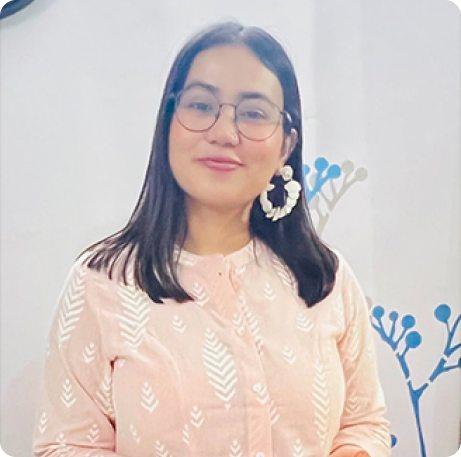A view from inside the field.
The pace of Web3 development is relentless. New protocols go live every day. DAOs manage billions. Bridges connect chains. DeFi keeps pushing boundaries. But beneath all this innovation lies a hard truth: if your codebase isn’t secure, nothing else matters.
At ImmuneBytes, auditing smart contracts is what we do every day. We work closely with teams building in Web3, and we’ve seen firsthand how a single overlooked bug can bring down entire projects. This isn’t a theory. It’s reality.
Over the last year alone, the Web3 space has lost over $1.7 billion to hacks and exploits. Some were due to protocol-level bugs, others due to flawed assumptions, or poorly implemented logic. Most of them could’ve been avoided with proper auditing and testing.
So let’s talk about what auditors actually do, why our role matters more than ever, and where this industry is heading.
Auditors Are the Last Line of Defence
In traditional software, if something breaks, the team pushes a patch. In Web3, contracts are often immutable. Once deployed, the code is out there, handling funds, responding to users, enforcing governance, without pause.
As auditors, our job is to make sure that once it’s live, it behaves exactly as intended and cannot be twisted into something else.
We look beyond the obvious. A simple transferFrom call might look safe until you realise that an unbounded external call after it can reenter the contract. A DAO proposal function might look permissioned, until you discover a logic path that lets a malicious actor sneak in execution rights.
Auditing is not about following a checklist. It’s about understanding how users and attackers might interact with the system, and how the system might respond under edge cases.
Auditors Are Everywhere, But We’re Not All the Same
There’s been an explosion in the number of auditing firms and freelance auditors in the past two years. Some are veterans. Some are new, using only automated tools. The landscape is fragmented.
Here’s where auditors are collaborating today:
- Code4rena, Cantina and Sherlock: These platforms run audit competitions where whitehat researchers earn rewards for finding bugs. They’ve helped uncover vulnerabilities that traditional audits sometimes miss due to time constraints or scope limitations.
- Github + Discord + Telegram: Yes, still the most active tools of the trade. Most audit discussions, triage reports, and client coordination still happen through these mediums.
- Private communities: Places like Immunefi’s elite researcher group bring together some of the sharpest minds in the space. These are the spaces where zero-days are disclosed responsibly and shared knowledge prevents widespread exploits.
- AI-assisted platforms: Recently, we’ve seen AI-assisted auditing tools that sort of help speed up initial reviews. But they’re still assistants, not replacements. The key is understanding that automated tools help surface patterns. But interpreting those patterns? That’s still very human work.
What Makes an Effective Audit in 2025?
At ImmuneBytes, we’ve developed a process that’s evolved with the space:
- Scope Alignment
We don’t just read the code, we understand the protocol’s intent. That includes tokenomics, governance, access control models, upgradeability patterns, and off-chain dependencies.
- Threat Modeling
We walk through possible attacks. Not just the usual reentrancy or overflow bugs. We ask how an attacker might behave. Could a whale manipulate a pool? Could someone DOS a function via gas griefing?
- Manual Review + Automated Analyses
We pair deep manual inspection with automated analysis techniques. One doesn’t replace the other. Fuzz, property, and invariant testing, along with static analysis tools like Slither, and our in-house scripts are part of our daily toolkit.
- Client Collaboration
We don’t throw a PDF at the devs and walk away. We review findings together, offer fixes, test patches, and verify implementations. It’s a back-and-forth.
- Post-Audit Verification
Once fixes are in, we re-review. We’ve found critical regressions even after fixes were applied. Nothing goes live without that final checkpoint.
Looking Ahead
As L2s mature, modular blockchains take off, and zk tech becomes mainstream, the complexity of smart contracts will only increase. With that comes more risk and more need for thoughtful, thorough auditing.
Auditors will play a bigger role in:
- Security design consultations
Getting involved before the first line of code is written, helping design safe patterns from the ground up.
- Real-time monitoring
Pairing audits with alert systems that catch unexpected on-chain behaviours post-deployment.
- Formal verification
Especially for high-stakes contracts like stablecoins or multi-sig wallets, where every edge case must be mathematically accounted for.
- Security education
We regularly hold workshops, webinars, and internal dev training for projects that want to build a security-first mindset.
In a nut shell
If you’re building in Web3 today, the stakes are high. Your users trust your code. The market moves fast. Mistakes are costly, not just financially, but reputationally.
At ImmuneBytes, we believe audits should be more than a checklist. They should be a conversation, a partnership, and a continuous process of learning and improving.
Security doesn’t end at deployment. And neither does our role as auditors. If you want to talk through your protocol’s architecture, brainstorm secure upgrade paths, or just get a second pair of eyes before launch, we’re here.
Let’s build safer systems. Together.

